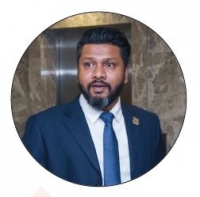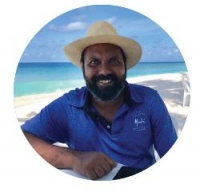Secret Paradise has been promoting local islands and cultural tours since 2012 and we fully support the decision by MMPRC to incorporate this aspect of the Maldives into their 2020 marketing strategy. Local island tourism is now an established part of the Maldives tourism offer, however, from conversations I have at trade events, as well as with guests, awareness within the worldwide tourism industry and at consumer level remains low. Therefore, I hope that this campaign will be successful and go some way to increasing awareness of both local island tourism and cultural opportunities available in the Maldives.
Tourism worldwide has seen an increase in demand for experiential travel opportunities and local island tourism falls into this category. I appreciate that not every tourist staying on a local island is looking for cultural learning and that many are happy to enjoy the beaches and ocean at a more affordable price. But there is a growing market of travellers who want to get to know a destination at a cultural level. Cultural opportunities are therefore important to showcase, but not just from the tourist’s perspective, also to ensure they remain alive for generations of Maldivians to come.
On the basis that sustainable economic growth is development that satisfies the needs of locals and guests in a manner that sustains natural resources and the environment, I would suggest that we have a long way to go in order for local island tourism to be a ‘sustainable haven’ for the Maldives. My personal opinion, based on what I see when I visit local islands and the feedback we receive from guests, is that greater regulations need to be in place in regard to island and property development and management. This should be based on protecting the environment which guests come to visit. We need to ensure that the islands and environment that guest’s dream of experiencing are not lost through the desire to drive growth from local tourism.
I have always been a believer that small steps are better than none at all and can lead to greater things. Let us not forget the time it took for the resort industry to develop and become fully established. Local tourism is still in its infancy, now is the time to learn from the last 10 years and with the correct focus and direction allow local islands to play a key part in our tourism economy.




